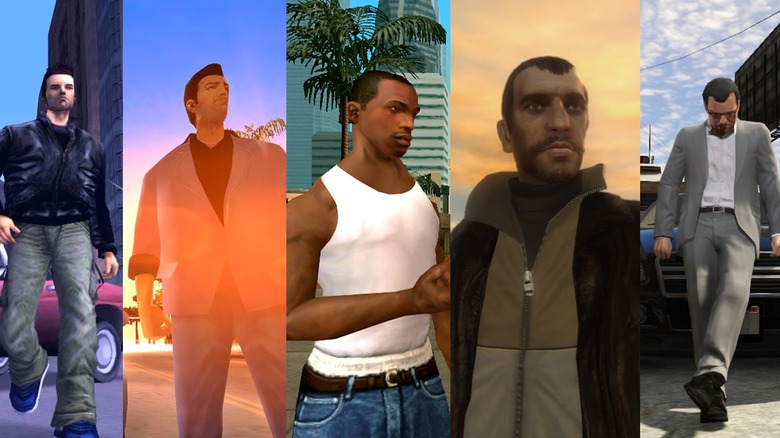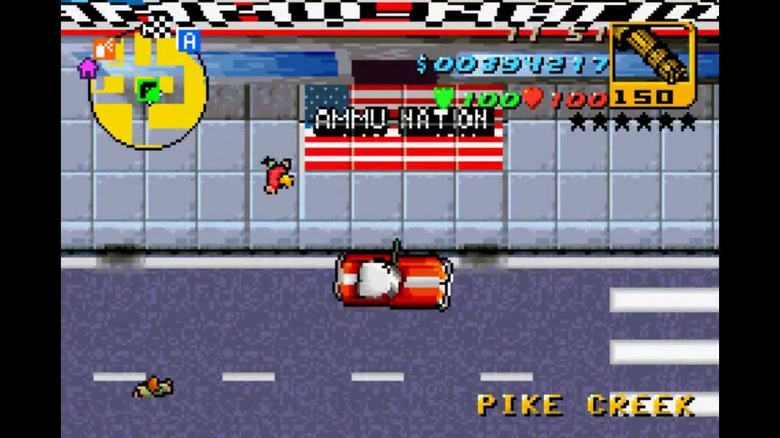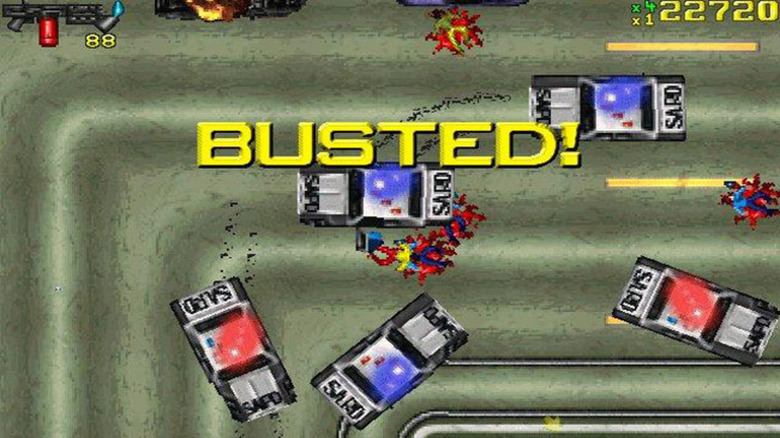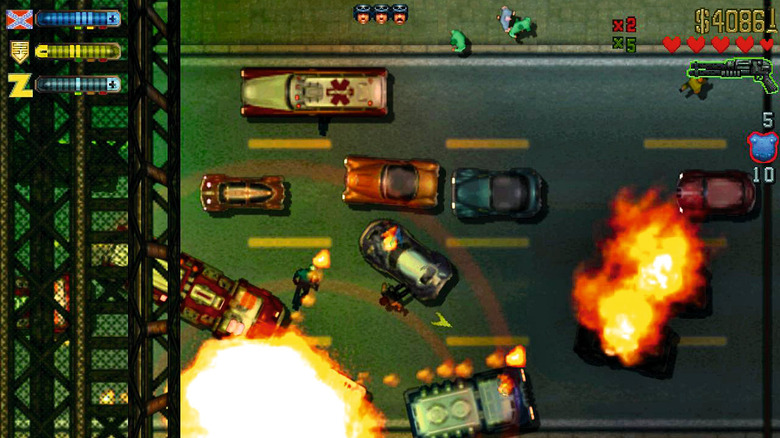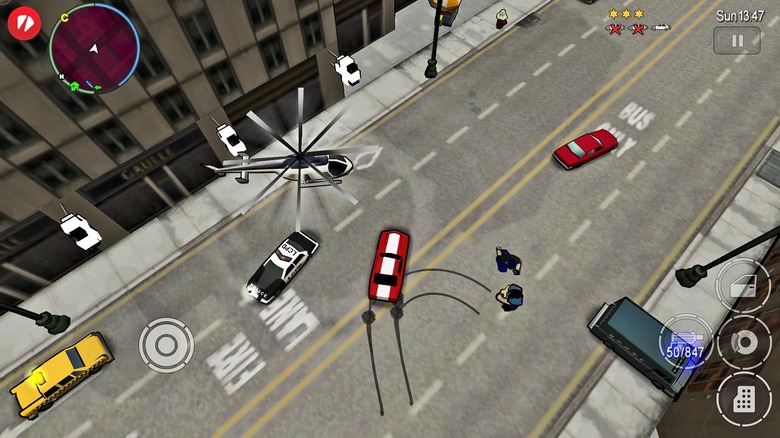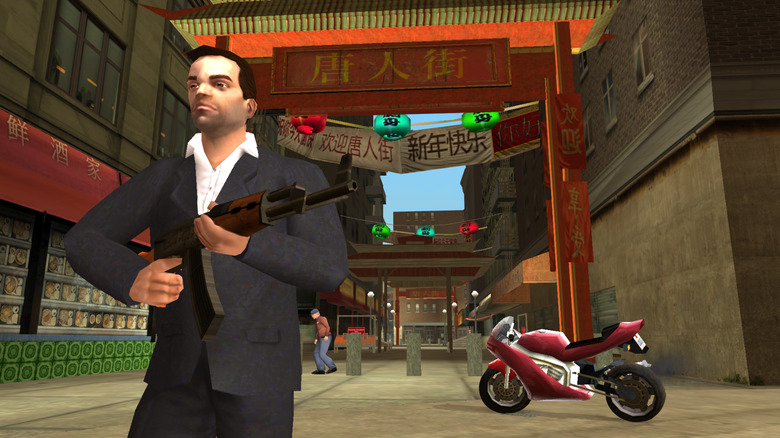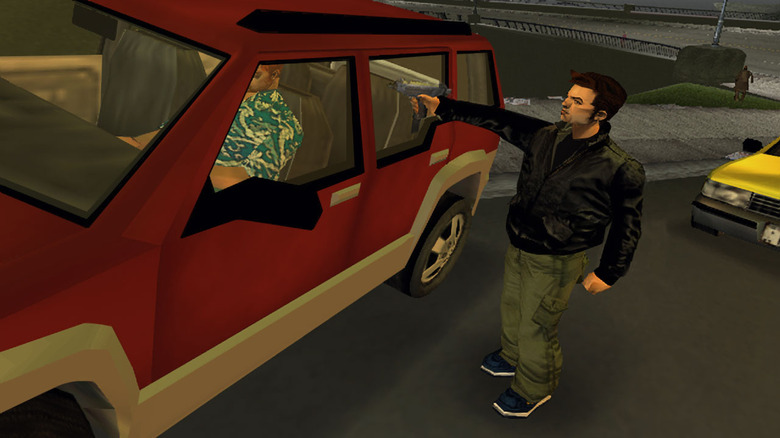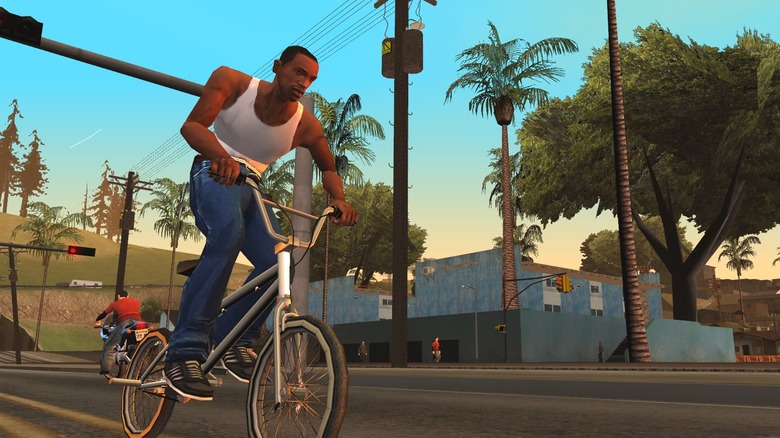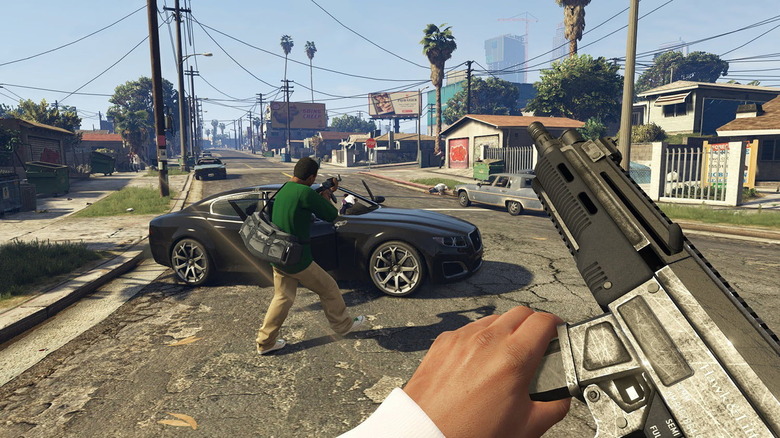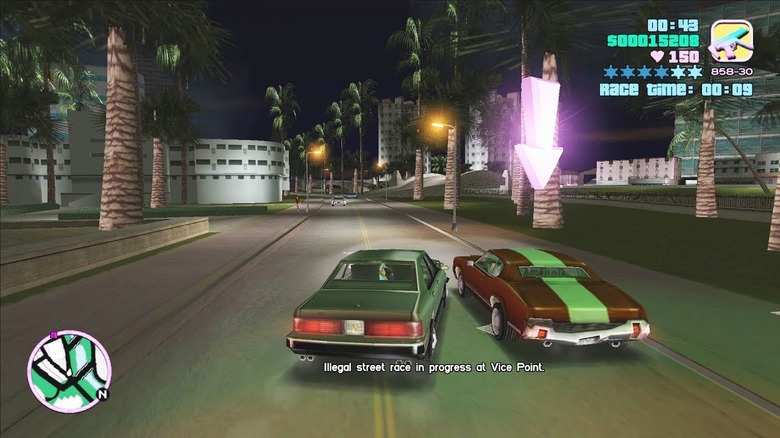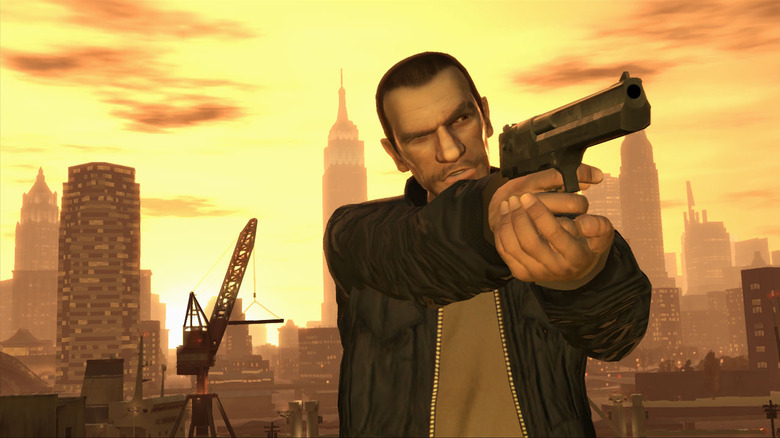Every Grand Theft Auto Game Ranked
What would the gaming landscape look like without Grand Theft Auto, one of the most iconic and controversial series of the medium? With over $6 billion in revenue coming from the most recent game of the series on its own, GTA is easily the most profitable entertainment product of all time.
Notice we said product, not just game. It destroys the competition in cinema, books, and music. It manages to make James Cameron's Avatar look like a bigger flop than Google Lively — and who even knew that existed?
No mean feat. It's a testament to the quality of the product, certainly, and one made all the more impressive when you consider its graphic content. Yes it's art, yes it's tongue-in-cheek, and yes it's intended for adults, but as notorious professional video game hater and American attorney Jack Thompson once put it: "(Grand Theft Auto) is the gravest assault upon ... this country since polio." And there's no way a lawyer would ever exaggerate, is there?
So it's bombastic, irreverent, ultra-violent, and makes more money than the Royal Mint. There's no way Grand Theft Auto is going anywhere soon. In fact, once Rockstar's cattle driving simulator Red Dead Redemption 2 is out of the way, you can bet GTA 6 will be up next.
Let's rate the best of the series in the meantime.
Grand Theft Auto: Advance (2004)
The Game Boy obviously wasn't a handheld known for its power, but even by portable standards, Grand Theft Auto: Advance wasn't much of a looker. It did a fine enough job replicating the original game with what it had, but the cramped and cluttered-looking screen, combined with the chirpy, shrill sound effects, meant extended periods of playtime soon grew tiresome. Noted critic Jeff Gertsmann definitely wasn't a fan.
Driving was one of the more notable problems, with the camera never quite zooming out far enough to allow you to see what was coming. This, of course, is particularly trifling in a game primarily centered around carjacking. It doesn't really lend itself to the feeling of being a dangerous veteran of the criminal underworld when you can't drive more than 50 meters at a time without bumping into a lamp post. You can safely pass on this one.
Grand Theft Auto (1997)
1997: the year it all began. And honestly, who could have seen it coming? Grand Theft Auto started life as the aptly named Race'n'Chase, with Scottish developer Rockstar openly admitting that they missed pretty much every development deadline, and that the game was a shoddy mess. But once released — and despite the negative press, controversy over the subject matter, and the poor condition the game shipped in — no one could deny that there was something there. A nugget of greatness just large enough to warrant a sequel.
Go back and play it today however, and you'll see that these are indeed more than humble beginnings. Once referred to by IGN as a product of "fast-food programming" in a tepid original review, it's actually quite hard to disagree. Glitchy graphics, questionable controls, and a frightful frame rate meant it certainly earned is middling critical reception.
Grand Theft Auto 2 (1999)
Despite the original's mediocre critical reaction, the response was quite the opposite from consumers. GTA flew off the shelves, going on to sell over 3 million units. A sequel was inevitable, and sure enough, it arrived a couple of years later, after some period content packs set in swinging '60s London.
Grand Theft Auto 2 did its best to improve upon the basic formula of the original, but it still wasn't enough to set the critics' world alight. Publications served up yet another round of lukewarm reviews, thanks mainly to its unchanged graphics and performance issues.
The story was far improved however, and the beginnings of the true Grand Theft Auto schtick can begin to be glimpsed amongst the mayhem. It continued to sell well, too, receiving the UK's Platinum Sales Award for shifting 300,000 copies.
Grand Theft Auto: Chinatown Wars (2009)
Grand Theft Auto: Advance was, thankfully, not the benchmark for handheld devices. Far better was 2009's Chinatown Wars, to this day one of the highest-rated games ever released on the Nintendo DS. It won the 2009 Spike Video Game Award for Best Handheld title, in addition to numerous other accolades.
It's not hard to see why. The buttery-smooth and highly stylized graphics made people at the time wonder how such a thing could even fit inside a handheld device, not to mention the large amount of content, fantastic soundtrack, and mini-games that happily outlive the single-player campaign.
Despite all this however, the game didn't sell nearly as well as expected. In the US, for example, it only shifted around 90,000 units during its first couple of weeks of sale — far from the blockbuster numbers we've now come to expect for the series.
Liberty City/ Vice City Stories (2005/2006)
The twin PlayStation Portable titles are yet more highlights of the handheld universe, packing as they did an almost unfathomable amount of quality content into a system the size of a toddler's shoe.
The Liberty City side of the story was also the first GTA to offer proper multiplayer for up to six people, although this was only over local Wi-Fi and it seems unlikely that any more than about 11 people in the world would have actually used it. In fact, when the game was later ported to the much more capable PlayStation 2, the multiplayer option was completely removed.
A shame really, as the only thing keeping these games from being truly great was the slight lack of innovation. As good as they were, by the time they had released, the GTA formula had come to feel a little predictable. Some little handheld counterparts would have been the perfect place to try out a couple of new things with nothing to lose, but fans would still have to wait a little while longer for Rockstar's next great stride.
Grand Theft Auto 3 (2001)
This was the game-changer. In some ways quite literally. Grand Theft Auto 3 snatched the camera from out of the sky and wedged it round the back of new silent protagonist Claude's head. Rockstar's design principle of allowing players to run amok in a living, breathing city was realized. And what an introduction it was.
Even without the nostalgia goggles, GTA 3 still holds up incredibly well to this day, and everyone should try to experience it where possible. So good was it in fact, that it spawned the rise of so-called "GTA clones," such as Driver, True Crime, and later Saint's Row. In much the same way that every first-person shooter in the '90s was referred to as a "Doom clone," you know a game has to be something special when it opens the floodgates for an entire genre. How could Rockstar possibly top this?
Grand Theft Auto: San Andreas (2004)
Carl "CJ" Johnson may not be as much of a household name as Lara Croft, Gordon Freeman, or Pikachu. But most people of a certain age are sure to know exactly who CJ is, and perhaps even more importantly, remember his plight.
San Andreas did everything well, but it's a game elevated not by its outrageous shock factor, but by its grounding in reality. This is the game where GTA's biting satire on American culture really found its teeth, but it's also where it found its heart. Inspiration was sought from many real-life and recent-history events, and the rise in drug problems and gang culture — all the while telling these stories through the eyes of a genuine and relatable minority protagonist, something that video games still haven't really dared to do much in the 14 years since.
Grand Theft Auto V (2013)
The most recent incarnation, and the daddy of sales. Hard to believe that despite being the newest of all the GTAs, it released all the way back in 2013, on the previous generation of consoles. What a release it was, though. Grand Theft Auto 5 is practically its own subgenre, but just because something's popular doesn't mean it's the best. Look at Transformers.
Make no mistake however: GTA 5 is a preposterously good game, and a remarkable technical achievement, but in some ways the praise initially heaped upon it was guilty of riding the hype train a stop too far. Endless list of pros aside, some of the cons include characters that were somewhat predictable and clichéd, and a narrative that lacked the punch of previous episodes no matter who you chose to play as. Swapping between protagonists proved to be nothing more than a gossamer-thin gimmick, and the game removed some of the smaller touches of its predecessors.
The online component, while now more popular amongst youths than Netflix and memes combined (as a somewhat rough estimate), didn't exactly launch to the best of starts. Extremely long load times, frequent server issues and as Gamespot so succinctly put it: "a lack of direction."
Juggernaut though it has become, the fifth main entry came packed with a bunch of issues, preventing it from topping the list.
Grand Theft Auto: Vice City (2002)
Vice City was a revelation when it first released on the sixth generation of consoles, showcasing a powerhouse open-world design not seen since ... well, the last Grand Theft Auto. This time however, Rockstar gleefully draped you in the hot, neon excess of the 1980s, letting you loose on the dusky, cocaine-fueled streets of Miami.
It's a dream realized for anyone who loved films of the era and wanted to be Al Pacino in Scarface, but didn't hate themselves enough to play the game Scarface (it wouldn't exist for another four years anyway). Vice City excels at the period details, and the thrill of building your empire, dancing in vintage nightclubs, and enjoying probably the best soundtrack of any game ever is something you won't forget in a hurry.
It was also way ahead of the '80s nostalgia revival curve, the apex we're only now just clipping. It goes without saying that Vice City was the best-selling game of that year, a feat made all the more impressive when you consider that Rockstar released it only a year after Grand Theft Auto 3.
Grand Theft Auto 4 (2008)
Honed over four years of production and ten years of experience, this is the absolute best that Rockstar has to offer. Grand Theft Auto 4 perfectly encapsulates the individual highs of the other games: the gritty, dynamic open world bursting at the seams with detail, the scathing jabs at Americana, the unhinged fun of going off-piste, and a cast of likeable, interesting characters.
Indeed, the compelling plight of Eastern European immigrant Niko Bellic as he arrives in America to pursue The American Dream is one that leaves us as the player facing many difficult moral choices, and over the course of the sprawling campaign ends in so much pathos it could just as easily be a Greek tragedy.
The darker, more nihilistic tone of GTA 4 also sits perfectly alongside the sandbox concept of GTA itself, as players are free to do whatever they like — and what they actually like doing is laughing maniacally at the physics as you push NPCs down the stairs for no good reason.
GTA 4 also had easily the best DLC content (hello Gay Tony), but unsurprisingly the main game alone is enough to hold firm as the highest-rated game in the series on Metacritic. And yes, of course it was the biggest-selling game of the year and won a ton of awards, but you're probably tired of reading about that. This time however, it did so well it even broke two Guinness World Records. A masterpiece.

